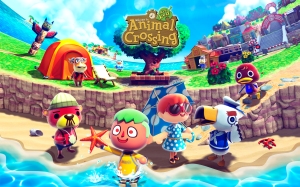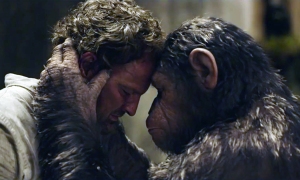In the spirit of making my readers awkwardly self-conscious about their day-to-day word choice, I want to talk about the phrase “s/he means well.” This conversational diversion is often used as an acceptable catch-all for evaluating someone’s actions or character, but I’d like to reveal it’s more common, and more damaging purpose: an excuse. This may seem harmless, but I promise you it’s actually a horrible scourge upon humanity.
I admit that describing another person as “well-meaning” is at times not a big deal. It’s somewhat frequent that you hear someone say something along the lines of, “My boyfriend got me daffodils for Valentine’s day even though I told him years ago lilies are my favorite, but he means well.” Yeah, pretty innocent. Chances are this person’s boyfriend just saw the white tepals (this word is used when petals and sepals are difficult to differentiate) and forgot that the signature corona is a dead give-away. No harm done, right? It would be much worse to hear, “My boyfriend got me roses for Valentine’s Day even though I told him I’m allergic and I spent all day in the ER, but he means well.” Much worse. But before you get too distracted wondering where I picked up my knowledge about Narcissus peoticus and/or telling speaker #2 that they need a new boyfriend, I want to clarify that I’m not saying “means well” is more damaging socially and culturally rather than physically.
Unfortunately we seem to hear “s/he means well” just as often for the little mistakes as we do the big, socially unacceptable ones. What I’m referring to is the frequency with which we hear, “My cousin Steve brought his new Latina girlfriend to Jason’s wedding, and my uncle Philip said some really racist stuff. But you know, he means well.” Yeah, we’ve all heard it. It’s not quite as harmless as the flowers, right? Another bad one is, “My grandma Ellie got completely shnockered at Jason’s birthday party and told Billy he’s her favorite grandson right in front of everyone. We had to call her a cab. But you know, she means well.” If you’re like me, at this point you’re wondering what Jason did to deserve all this.
I don’t think I need to explain the evils of racism and alcoholism, but what I hope made an impact with most of you is how commonplace these situations are. We grow up with these situations and innocuously add “s/he means well,” especially with family and friends who behave inappropriately. It may seem polite to not harp on another person’s issues, but what is really happening is they’re getting a by. I’m not asking anyone to verbally assault their racist uncles, but when you say “he means well,” you’re really saying, “I’m going to deal with this later, i.e. never.”
There’s a real toxicity to excusing someone because “they mean well,” in that you’re ignoring someone’s problematic actions, and it doesn’t just apply to your family and friends. Believe it or not, it’s one of the major problems that social justice and civil rights movements face all of the time. A well-meaning, open-minded person who supports the cause and is willing to join the fight can be damaging overall to the movement itself. Without proper direction, a person’s efforts can be detrimental in a hundred different ways, despite their intention. In other words, a person isn’t safe from impracticality, short-sightedness or false opinions just by virtue of meaning to do well.
We are of the opinion that good intentions are supposed to count for a lot, and I don’t mean to demonize this ideal, but it seems like the people who cite good intentions are most commonly those who aren’t paying the price. “Meaning well” doesn’t count for much unless you have the privilege of your voice being heard. So the next time you excuse someone with “s/he means well,” consider whether or not you mean to give that person an alibi.



